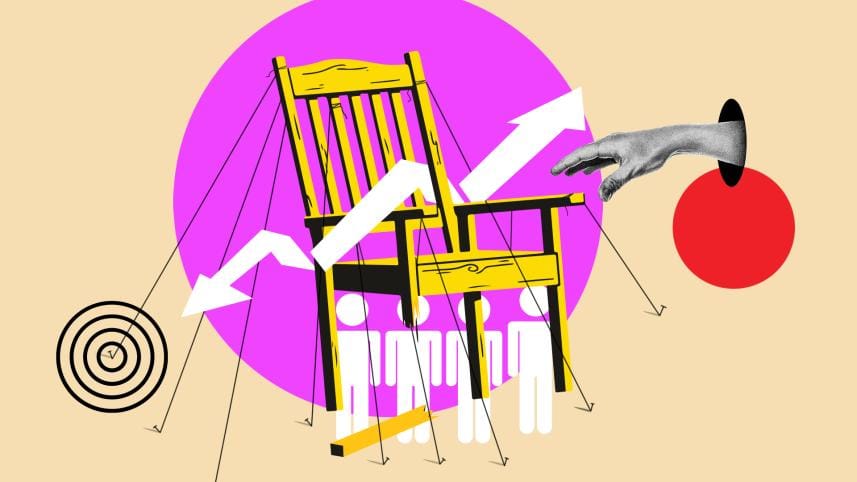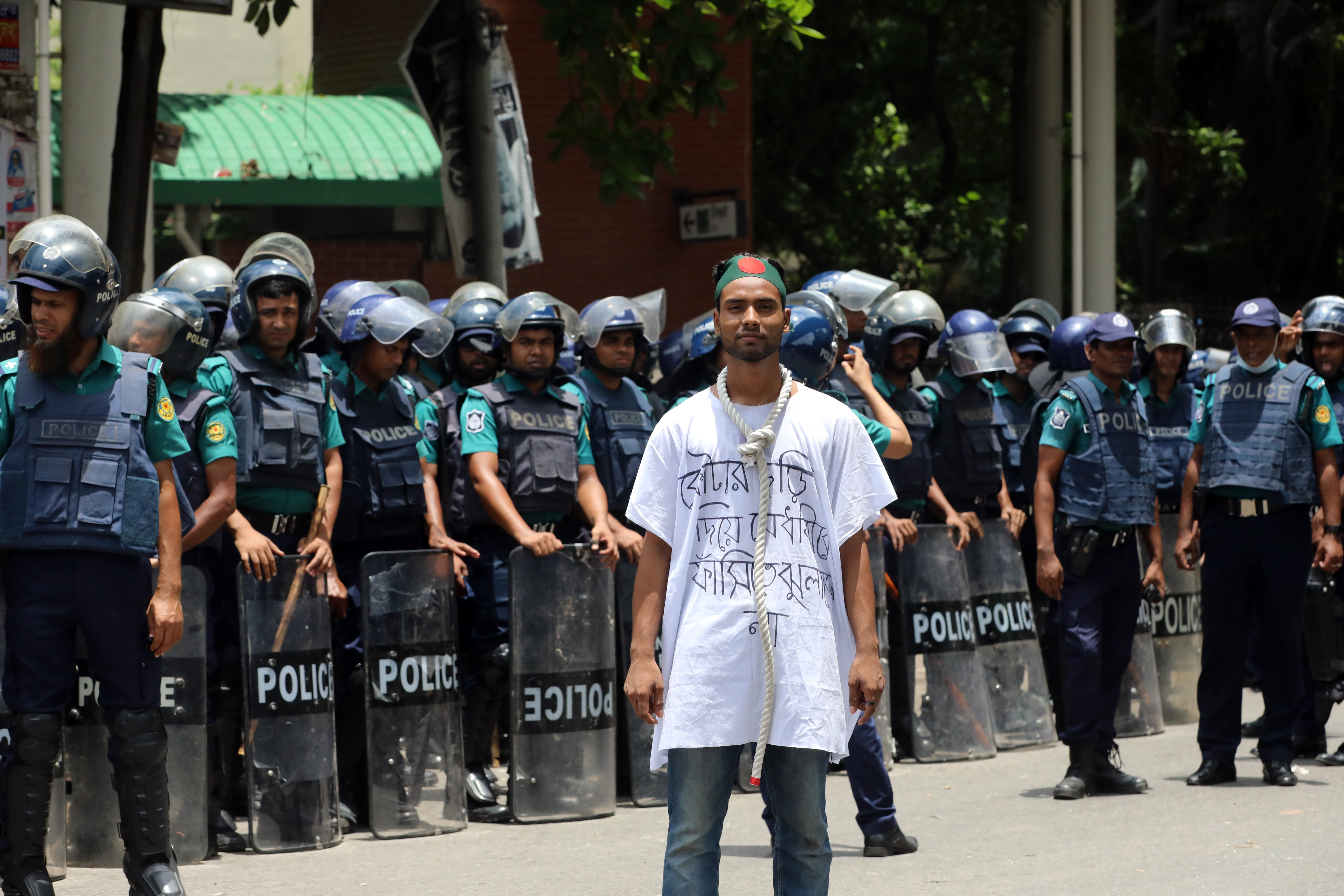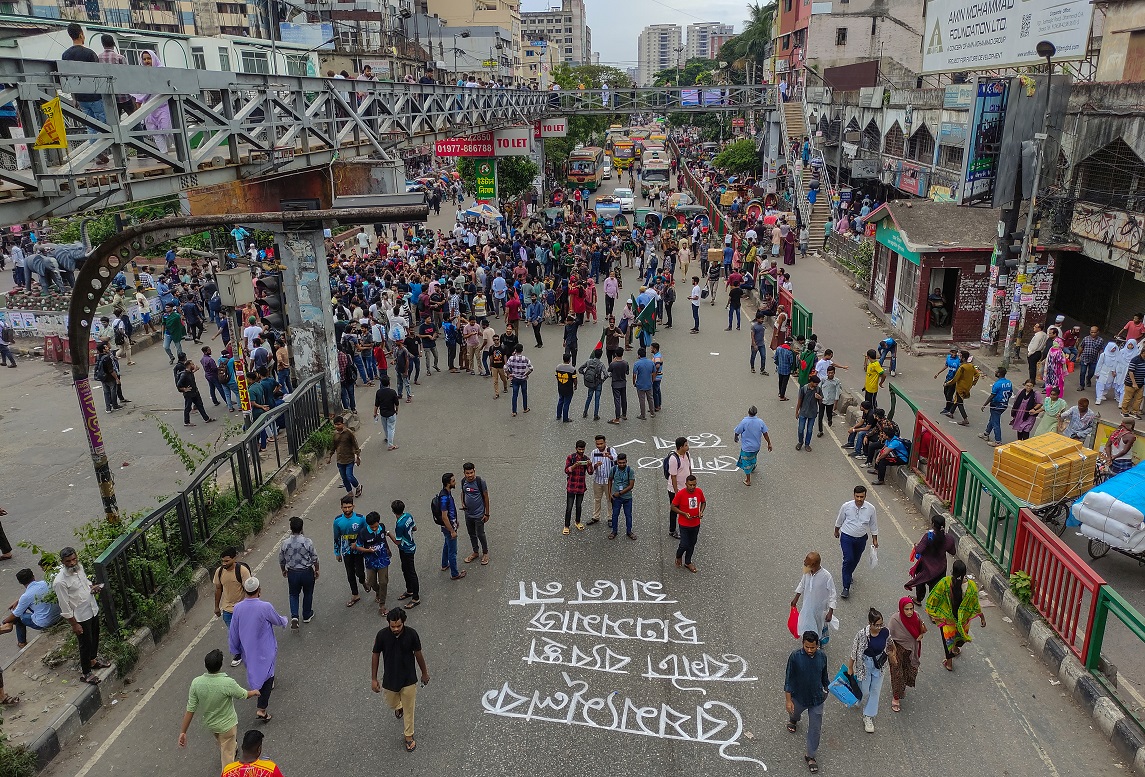The thick line between ‘state’ and ‘government’

The distinction between 'state' and 'government' is theoretically clear, yet practically complex. If we compare the state to a four-legged chair, the government represents only one leg. Despite this clear theoretical differentiation, the government often assumes full control over the state, especially in weaker democracies. In such contexts, the distinction between state and government blurs, leading to the state often dissolving into the entity of the government.
The state comprises four main elements: population, territory, government, and sovereignty. Among these, the government is the most tangible element, consisting of a small number of people elected for a specific period, supported by the larger population. In a republic, the people are the owners of the state and elect representatives to run the state for a designated term. These representatives, forming the government, are tasked with formulating and implementing policies aimed at the welfare and aspirations of the people, assisted by state employees. Section 11 of the Constitution of Bangladesh explicitly states that "effective participation by the people through their elected representatives in administration at all levels shall be ensured," a principle that should be mirrored in all democratic countries.
Governments, composed of people, are inherently prone to errors in their primary responsibility of running the country. A key advantage of a democratic society is the presence of multiple parties and individuals aspiring to form the government. If a government fails to perform its duties adequately, the people have the power to replace them in the next elections, assigning these duties to other parties and individuals. Additionally, various institutions such as parliaments, opposition parties, legislatures, media, civil society, and other related bodies highlight deviations during a government's tenure. The overarching aim is the welfare of the people and the reflection of their aspirations.
These attributes define a democratic state. While many people are familiar with this definition and the related terminology in political science, it is worth repeating because these concepts are often forgotten. Politicians, policymakers, public servants, and the media, along with the public, frequently overlook the structure of the state and the distinction between state and government. As previously mentioned, in weak democracies, this distinction becomes especially blurred, leading to an autocratic shift in the government. To prevent this, modern state systems emphasise the "separation of powers" among the branches of government, a principle that helps maintain a balance of power and prevent autocratic governance.
In a democratic system, the government typically consists of three branches: the legislative, the executive, and the judicial. The legislative branch, responsible for making laws and in Bangladesh, is represented by the National Parliament. The executive branch, which includes the prime minister and cabinet ministers, implements and enforces these laws, holding significant power. The judicial branch, distinct from the legislative and executive branches, includes courts and judges responsible for interpreting and applying the law, ensuring justice, and maintaining consistency with the constitution. The judiciary must operate independently to provide checks and balances and protect individual rights, free from political influence. Article 22 of the Bangladesh Constitution mandates the separation of the judiciary from the executive. However, this separation was officially implemented only in 2007 and the executive still seems to exert considerable influence over the legal system, particularly in lower courts. Strict adherence to the separation of powers is crucial to prevent any state organ from gaining absolute power and becoming a "Frankenstein's monster." British politician Lord Acton famously said, "Power tends to corrupt, and absolute power corrupts absolutely." History is replete with examples where absolute power has led to the erosion of civil liberties and increased corruption.
In Bangladesh, political and official discourses often accuse critics and opposition members of "anti-state and anti-government conspiracies," even for merely criticising government policies. Such accusations exploit ambiguities in legal terminology. For example, in August 2022, a student at a public university was handed over to the police by the university authority, accused of "involvement in anti-state activities" simply for liking the Facebook page of an opposition student organisation. The police later released him after finding no evidence of sedition. According to the student, he had criticised the current government in an internal Facebook Messenger group text, which led to him being unjustly labelled "anti-state" and handed over to the police.
The law must clearly differentiate between criticism of the government and opposition to the state. Suppressing government criticism by labelling it "anti-state" will ultimately harm both the government and the state. In September 2016, the Supreme Court of neighbouring India issued a landmark ruling on this matter. The Court stated that harsh criticism of the government does not equate to insulting it or committing treason. Sedition charges apply only when actions incite public disorder or violence. This ruling underscores that anyone can criticise the government without facing defamation or treason charges.
Moreover, it is crucial to clarify the role of "government employees." Are they employees of a particular political party, or the state of Bangladesh? The constitution refers to them as "public servants," making it clear that they are state employees, not political appointees. While political governments change every five years, public servants do not. Their primary role is to serve the state and work under the direction of the legitimate government. Political governments must not use public servants for political purposes, and these servants of state must maintain political neutrality. The Government Servants (Conduct) Rules, 1979 explicitly state that no government servant shall be associated with any political party or take part in any political activity, and although they may vote, they must not indicate their voting preferences. However, in practice, some government employees are enticed and inclined towards political parties, undermining the mandated neutrality and compromising the integrity of the democratic process.
Therefore, it is crucial to revisit and reinforce the principles that differentiate the state from the government. The government, composed of transient elected representatives, must operate within the confines of the law, serving the people rather than the other way around. This is especially important in weaker democracies, where the risk of governmental overreach is higher. Public awareness and understanding of these principles are essential to safeguarding democracy and ensuring that the government remains accountable to the people. A clear distinction between the state and the government is fundamental to the functioning of a democratic society. The state, with its permanent structures and institutions, provides the framework within which the government operates. The government, as the elected representative body, must respect this framework, adhere to the separation of powers, and maintain its accountability to the people. By upholding these principles, we can ensure that democracy thrives and that the rights and liberties of the people are protected.
Asinur Reza is program coordinator, South Asia Governance Program at The Asia Foundation. He can be reached at asinur.reza@asiafoundation.org
Views expressed in this article are the author's own.
Follow The Daily Star Opinion on Facebook for the latest opinions, commentaries and analyses by experts and professionals. To contribute your article or letter to The Daily Star Opinion, see our guidelines for submission.




 For all latest news, follow The Daily Star's Google News channel.
For all latest news, follow The Daily Star's Google News channel. 


Comments